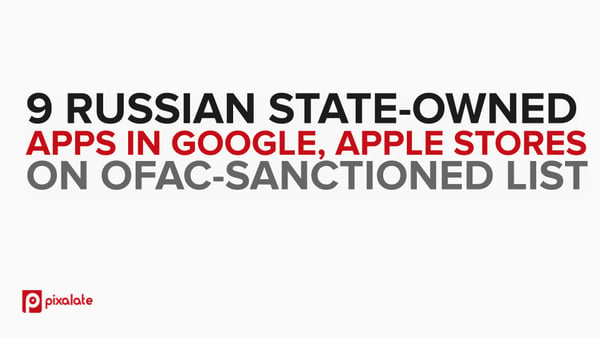
This week's review of ad fraud and privacy in the digital advertising space.

On February 24, 2022, OFAC updated its Russian-related designations and included YooMoney on its correspondent account or a payable-through account (CAPTA) list of sanctioned companies under Executive Order 14024 Directive 2, which covers “prohibitions related to correspondent or payable-through accounts and processing of transactions involving certain foreign financial institutions.”
There are 9 apps from YooMoney available for download on the Google and Apple app stores as of February 25, 2022. In 2020, YooMoney (then operating as Yandex.Money) was wholly acquired by Sberbank, a state-owned Russian bank.
Learn more in our blog.

Roku introduced Advertising Watermark, validating the authenticity of video ads and users viewing the ad. "Roku’s Advertising Watermark integrates with the Roku operating system to automatically verify publisher ad requests and impressions so that advertisers know they are reaching genuine Roku users," informs Roku in the press release.

Some large online publishers, including Vox Media, BuzzFeed, and Bustle, explore alternatives to Google's AMP due to generating less advertising revenue than potential other solutions. According to The Wall Street Journal, the publishers expect to generate at least 20% more revenue than with AMP and without a significant change to site latency.

"Apple’s 2021 privacy updates have advertisers approaching iOS with caution and accelerating their investment in Android. Last May, soon after the changes rolled out, US Meta ad spending rose at about the same pace on both types of mobile devices. By the end of December, growth on iOS had slowed to 3% year over year, while Android’s soared to 101%," informs eMarketer.

TV viewers in Europe and the US still perceive linear TV ads frequency as too high. "Ninety-two percent of U.S. viewers surveyed in 2021 believe “they see the same advertisements too many times when watching linear TV,” according to a new study by Audience Project. "The study also generally shows high percentages for advertising 'irrelevance' on linear TV, although in the U.S. this was lower than most European countries, with a 46% score compared to 70% in the U.K., Germany (73%); Denmark (68%); Sweden (55%); Norway (57%); and Finland (63%)," informs MediaPost.
*By entering your email address and clicking Subscribe, you are agreeing to our Terms of Use and Privacy Policy.
These Stories on Weekly Recaps
*By entering your email address and clicking Subscribe, you are agreeing to our Terms of Use and Privacy Policy.

Disclaimer: The content of this page reflects Pixalate’s opinions with respect to the factors that Pixalate believes can be useful to the digital media industry. Any proprietary data shared is grounded in Pixalate’s proprietary technology and analytics, which Pixalate is continuously evaluating and updating. Any references to outside sources should not be construed as endorsements. Pixalate’s opinions are just that - opinion, not facts or guarantees.
Per the MRC, “'Fraud' is not intended to represent fraud as defined in various laws, statutes and ordinances or as conventionally used in U.S. Court or other legal proceedings, but rather a custom definition strictly for advertising measurement purposes. Also per the MRC, “‘Invalid Traffic’ is defined generally as traffic that does not meet certain ad serving quality or completeness criteria, or otherwise does not represent legitimate ad traffic that should be included in measurement counts. Among the reasons why ad traffic may be deemed invalid is it is a result of non-human traffic (spiders, bots, etc.), or activity designed to produce fraudulent traffic.”

